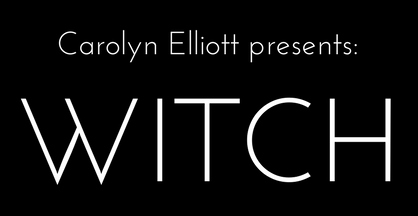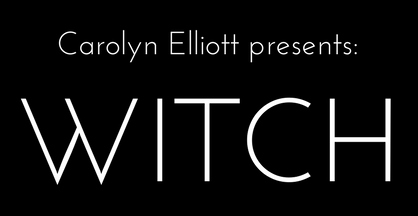by Sarah Birdsong
The first clear aspiration I remember having as a child was the desire to be an artist and a writer.
I spent hours upon hours devising vast paracosms with fantastic beasts and extraordinary heroes. Piles of notebooks were kept on my desk, each devoted to a different topic and a different world.
Similarly, a notebook was kept by my bed to record what I could remember of my dreams.
I was possessed by the idea that I could become an author by some pre-imagined time and live in a happily ever after of my own making.
But I’ll never forget the day when, as a child, I told my mother just that.
“Mom, I want to be an artist and a writer when I grow up.”
I was holding a notebook in my hand, assiduously filled to the last page with my most recently imagined realm.
It was, of course, my greatest work, an unheralded bestseller to be.
I was getting ready to design my characters in my sketch pad.
Bubbling with excitement, I was beginning to turn the pages so that I might share my ideas with her.
My mother took one look at me and replied,
“Well, you’ll have to work that around your husband and children. That’s God’s plan for you as a woman.”
In the wake of the Satanic Panic, myself and my brothers had been home schooled with all the fundamentalist furor one might expect from that path.
As the only daughter in the family, I was kept to a vastly different standard, and that standard revolved solely around my mother’s idealizations of womanhood.
That didn’t stop her, however, from thumbing through my notebooks to proofread my work to check its alignment with Christian values.

Everything was required to be an allegory to Biblical ideals, not unlike the Chronicles of Narnia.
Any resistance was met with hours of Biblical warfare and lectures; woe betide any daughter of hers who let the devil use her hand for his work.
Occasionally, she would find journals of mine and thumb through them, reading passages aloud in tones that conveyed neither pride nor support.
But I still have that notebook somewhere — a forgotten world with forgotten symbols, the characters barely a sliver of a memory in my mind.
After that, I didn’t write with the intention of “being a writer” for more than fifteen years.
I wrote with practicality in mind. Even my undergraduate degree saw the remnants of these strides I took in being “realistic” with my Technical Writing minor.
My scientific research papers were dry and unforgiving, direct and lacking in prose. I was playing it safe.
Any work written outside this strict paradigm was kept under lock and key.
Until, of course, an ex was assisting me in reformatting my computer.
While he saved my hard drive to an external, he peeked through my files, including my personal writing.
After the job was done, he mentioned he had found my writing folder and advised me to not quit my day job.
It has taken me the majority of my adult life to return to the idea that I could or should write, much less share it with the world.
That dream wasn’t revisited until my partner began reading my research papers and insisting I share my thoughts outside of academia.
That was five years ago.
It has taken him all this time with gentle reassurance and my insistence that he copy edit everything that pours from my brain to even begin considering sharing my work with the world at large.
But even as I progress on this journey, I continue to fall back on one familiar question; why? Why am I writing? Why should I write?
In a sea of rhetorical questions, endless arguments, and political intrigue, what is one more voice in a storm of many?
Self-doubt is chief among the problems I create for myself.
First and foremost, writing is the internal compass that allows me to navigate and make sense of a world I often cannot relate to.
Before the world of social media and the ease at which we can broadcast our every thought, mankind wrote for a variety of reasons.
From the counting of livestock to the poetry of late and great authors, writing has shaped the world and our understanding of it.
Writing is the backbone of our development into a society that remembers and learns from the past.
It is a form of magic and it has the power to inspire powerful change. It is the form of magic I most often turn to for its awesome power to inspire, to change, to set someone or something alight.

It’s a tool of integrity and of conscious mindfulness of my experience in the world. But it also serves as a tool to work in preserving the experiences of others who may not have the same advantages I do.
Writing is a tool of preservation. Preservation is a facet of social memory. It provides a cultural snapshot of that may be lost to time.
I view it as a personal responsibility to aid in that snapshot’s protection, particularly after my undergraduate tenure in social anthropology.
Writing allows me to reach people through a sense of familiarity in shared experiences.
In September of 2017, I fell dangerously ill to a mystery disease that has taken months to diagnose because of its atypical presentation—Crohn’s Disease.
It would be easy to say that the acute onset of my chronic illness bowled me over and left me destitute, mourning for the life and body I once had. Because I did… at first.
While those feelings are relatable, they focus on what is wrong with me now rather than who I can become.
The story I tell myself and others about myself is important because my life is more than a sequence of events.
The narrative I choose — even as it is constrained by facts and personal bias — has the power to shape not only how I view myself, but how others view me and themselves.
If I focus on how my illness destroyed the life I knew, it might give others on a similar path the idea that this is all they can look forward to.
This is because people are more open to change through the art of storytelling, not arguments or statistics.
With my writing, I have the power to change someone’s life through the positive retelling of my story and how it inspired me to take better care of my health and my desire to pursue dreams I never before thought possible.
These thoughts given form have the power to positively transform the life of someone I may never know or meet who happens across my work in ways I will never know.
Most importantly, I have realized my calling as the Sick Witch since my diagnosis, which has given me renewed clarity of purpose.
My illness has put me in touch with a community of souls I never would have found otherwise.
I view this community as my social responsibility.
I want to inspire them to advocate for better care for themselves and others, to navigate a world not built or designed for the handicapped or the ill, to live a life full of meaning in a world that says you shouldn’t even exist due to the nature of your condition.
Writing has the power to change lives and sometimes those lives need changing through subtle suggestion and powerful imagery.
The example I set as I weave my words, my magic, will leave ripples behind I may never know the impact of.
I must be mindful of this and them.
My work, even as I struggle, has the power to encourage others.
In addition to my partner pouring through my work, I always defer to my sister-in-law when my creativity meter is running low.
My prose lacks the rhetorical flourish that comes so naturally to her. Additionally, if I am struggling with a concept, she is at the top of my list of brains to pick.
In short, if I find myself at a literary standstill, she always seems to know exactly what I need — almost effortlessly.
In doing so, I inspired her to pursue her own passions in writing. She began to write more on her blog… and she began sharing her work with others.
This evolved into her submitting her work to various platforms that, to my mind came as no surprise, snapped up her work and published it in earnest.
Unbeknownst to me, she had been struggling with feelings of inadequacy, feeling unaccomplished and perhaps even under appreciated in her private life.
In assisting me with my work, she found inspiration for her own passions, which gave her the lift she needed to pursue them.
Receiving this kind of gratification on how our work affects others is rare. But knowing how our literary relationship has shaped her personal life and how she views herself is a powerful lesson.
She found her own magic while helping me with mine.
We have the power to shape the lives of others even as we are preoccupied, struggling to shape our own.
The example we set precedes us.
But most importantly, we can shape the world around us by the stories we tell and how we choose to present them.
Anyone can say they want to change the world, but their methods matter more than this platitude.
Rather than trying to take a large, amorphous concept and trying to craft it into something noteworthy in a world full of doubt and malaise, pick one small thing.
Pick one small thing and focus your time and energy into that.
It may be true that your work will go unnoticed and no one will care if you share it.
But someone might if you do.
IN CONCLUSION
If this essay resonates with you, please join our WITCH email list by using the forms on this website so we can stay in touch.
About the Author:
 If you like inane and broody thoughts, Sarah’s Twitter is the place for you. Follow her absurd adventures on Instagram. Keep track of her work on Facebook. You may also catch up on her long-form thoughts on her personal website, vvitch, please!
If you like inane and broody thoughts, Sarah’s Twitter is the place for you. Follow her absurd adventures on Instagram. Keep track of her work on Facebook. You may also catch up on her long-form thoughts on her personal website, vvitch, please!







